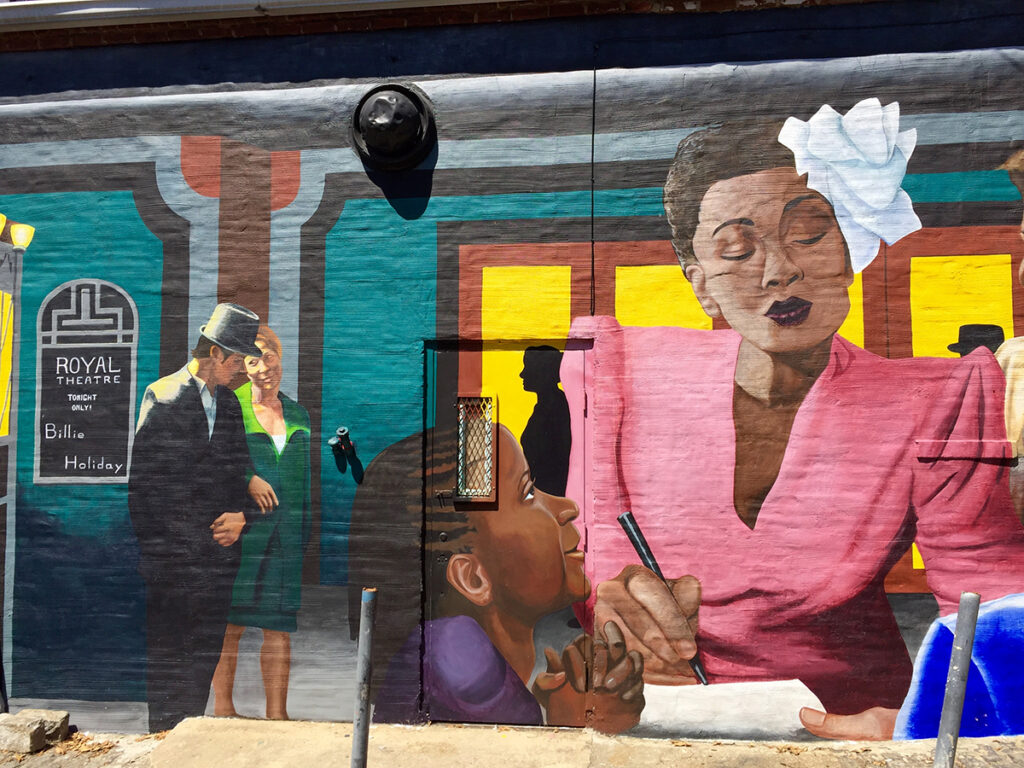
Bitter Crop: The Heartache and Triumph of Billie Holiday’s Last Year by Paul Alexander; Knopf, 368 pp., $32
Since her death in 1959, Billie Holiday’s life has inspired artists, filmmakers, and biographers, whose efforts have contributed as much to her legend as her unique voice and exquisite musicianship have contributed to her artistic legacy. Paul Alexander’s Bitter Crop is the latest offering to address our collective desire to know and understand an artist whose influence continues to shape contemporary vocalists as well as the mythologies we create about them. Using archival material, new interviews, and his own gifts for narrative, Alexander builds on previous efforts to reveal new dimensions of Holiday’s commitment to her craft, as well as her devotion to her audiences.
Alexander opens each chapter with an incident or a story from the year preceding Holiday’s death, allowing him to launch into flashbacks that explore larger aspects of the artist’s life. Much of this information is familiar, but Alexander often provides greater depth and analysis than have previous biographers. Bitter Crop benefits from its author’s access to an extraordinary archive collected by the late arts journalist Linda Lipnack Kuehl. Alexander draws from this trove of rich source material to construct his in-depth portrait of Holiday and her milieu. More than that, Alexander’s book comes at an auspicious moment: the public’s attitudes toward same-sex relationships, recreational drug use, and addiction have softened to the point where Alexander can write more forthrightly about Holiday’s relationships with women and her narcotics use. He is upfront and honest about the difficulties she faced, but these are not presented at the expense of discussions of her genius, her personal and aesthetic choices, or her courage. Unlike too much work on Holiday, Bitter Crop is neither prurient nor voyeuristic.
Having devoted years of her life to conducting interviews for the Holiday biography she planned to write, Kuehl died before completing her book, and for some time, her cassettes and reel-to-reel recordings had been in a private collection. Prior to Alexander, a few biographers—Robert O’Meally, John Szwed, and Julia Blackburn among them—had access to this collection. It also was the basis of a 2020 documentary, Billie, in which Kuehl is as much a character as Holiday herself. Alexander makes extensive use of Kuehl’s interviews but supplements them with his own—of people who knew Holiday and others who saw her perform. This research contributes greatly to one of the most compelling aspects of Bitter Crop: Alexander’s extraordinary evocation of Holiday’s charisma and the unusually intimate connection she formed with her audiences. Toward the end of the singer’s life, critics turned on Holiday, lamenting her “loss of voice.” As Alexander writes:
What they did not seem to understand was that Billie’s audience—who never gave up on her—knew her voice was not in the pristine condition it was in during the 1930s when she recorded with Teddy Wilson; the fans were there to hear her performance of the songs, which remained sincere, deeply sensitive, almost confessional. Her audience … connected with her on an emotional level. Like Judy Garland and Édith Piaf, Billie Holiday may have ended up offering a flawed version of a song, but it was perfect in its authenticity. As the years passed, her performance—her art—became different not only because her voice changed but also because she changed.
In Alexander’s telling, Holiday’s relationship with her audience was the most consistently reciprocal and satisfying of her life. But her private associations also offered the singer much-needed solace. Holiday pursued long-term romantic relationships with New York philanthropist Louise Crane and actress Tallulah Bankhead, and she enjoyed close friendships with jazz pianist and singer Hazel Scott and Sri Lankan singer and actress Yolande Bavan. Alexander details all of these relationships with sensitivity and depth. One of the most compelling and beautifully written chapters in Bitter Crop paints a portrait of Holiday’s friendship with fellow jazz singer Annie Ross. It stands out for the impressionistic, speculative nature of its prose, reading like a short story told from the perspective of an omniscient narrator.
It is worth noting that the relationships Alexander details in Bitter Crop tend to be between Holiday and upper-class, wealthy white women. Holiday also had romantic relationships with Black women, and readers may wonder whether they were not as significant to her. Perhaps Alexander’s lack of attention to these romances can be attributed to a lack of solid documentary evidence. And not all of Holiday’s relationships were positive, particularly when it came to men, a fact upon which many other biographers dwell. She suffered at the hands of abusive husbands who exploited her, and the two Hollywood films devoted to her life portray heterosexual romances that appear to have been entirely fabricated. The attention Alexander pays to his subject’s same-sex relationships provides an interesting and necessary counterbalance.
Loneliness defined Holiday’s final year. Her most consistent companion was her chihuahua Pepe. She would listen to music on her phonograph for hours on end—her own recordings and those of her peers. She had a small but dwindling group of friends. She believed, correctly, that she had been mistreated by men who claimed to love her, but even more so by the federal government, which continued to hound her as much for her political convictions as for her addictions. But as Alexander compellingly shows, Holiday lived with the certainty of her accomplishments—of her stature as an artist and a contributor to the music she loved.

